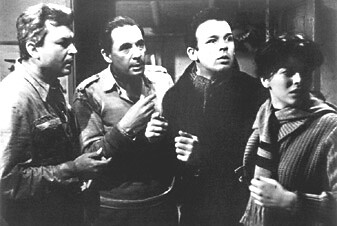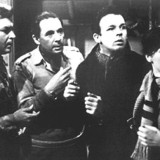 Known as the father of neorealism in Italian cinema, specifically due to his widely acclaimed masterpiece, Rome Open City – Roma, città aperta (1945), in this film director Roberto Rossellini continues his theme of personal human stories embedded in the rough realities of Italy during WWII.
Known as the father of neorealism in Italian cinema, specifically due to his widely acclaimed masterpiece, Rome Open City – Roma, città aperta (1945), in this film director Roberto Rossellini continues his theme of personal human stories embedded in the rough realities of Italy during WWII.
Portraying a common phenomenon at the time by zooming in on a single representative story, Rossellini picks the period right after the September 8th 1943 declaration of the Armistice between Italy and the Allied armed forces who occupied the southern part of the country. During this period of transition, many Italians in the northern parts, still controlled by the Fascists, provided shelter to Allied POWs, even at the clear risk to their lives if caught.
The film tells the story of Esperia (Giovanna Ralli), a black marketeer that hides three soldiers (American, Brit and Russian) in her attic in Nazi occupied Rome. The soldiers develop deep relationships among themselves and their host despite the ongoing communication challenge, undoubtedly to show that helping the other doesn’t require much other than good will in the face of hardships.
Helping Esperia in her trying quest, is her boyfriend Renato (Renato Balducci) that continues with his reckless amorous lover portrayal he did two years earlier, in one of the emblematic masterpieces of the Italian comedy genre; Big Deal on Madonna Street – I Soliti Ignoti (Mario Monicelli – 1958). This typecasting for the sake of comic relief, I find works well here.
The film boasts Rossellini’s signature rough black and white color template that reinforces his documentaristic style to convey people and events as they were. In fact, the film opens like a news bulletin with a voice over in English that sets the historical context for the plot.
And like in most Rossellini’s films, his brother Renzo Rossellini provides a score that offers a continuous tensed ambiance to support the immense risk Esperia took on herself constantly surrounded by invisible prying eyes that can abruptly compromise her safety and that of the soldiers.
With all the craziness of war around us, I found it still amazing that despite all mankind achievements, the human brain can sometimes be so binarily wired; one or zero, black or white love or hate. I call for realignment.

